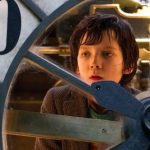 History
History  History
History  Weird Stuff
Weird Stuff 10 Wacky Conspiracy Theories You Will Need to Sit Down For
 Movies and TV
Movies and TV 10 Weird Ways That TV Shows Were Censored
 Our World
Our World 10 Places with Geological Features That Shouldn’t Exist
 Crime
Crime 10 Dark Details of the “Bodies in the Barrels” Murders
 Animals
Animals The Animal Kingdom’s 10 Greatest Dance Moves
 Movies and TV
Movies and TV 10 Box Office Bombs That We Should Have Predicted in 2025
 History
History 10 Extreme Laws That Tried to Engineer Society
 History
History 10 “Modern” Problems with Surprising Historical Analogs
 Health
Health 10 Everyday Activities That Secretly Alter Consciousness
 History
History 10 Dirty Government Secrets Revealed by Declassified Files
 Weird Stuff
Weird Stuff 10 Wacky Conspiracy Theories You Will Need to Sit Down For
 Movies and TV
Movies and TV 10 Weird Ways That TV Shows Were Censored
Who's Behind Listverse?

Jamie Frater
Head Editor
Jamie founded Listverse due to an insatiable desire to share fascinating, obscure, and bizarre facts. He has been a guest speaker on numerous national radio and television stations and is a five time published author.
More About Us Our World
Our World 10 Places with Geological Features That Shouldn’t Exist
 Crime
Crime 10 Dark Details of the “Bodies in the Barrels” Murders
 Animals
Animals The Animal Kingdom’s 10 Greatest Dance Moves
 Movies and TV
Movies and TV 10 Box Office Bombs That We Should Have Predicted in 2025
 History
History 10 Extreme Laws That Tried to Engineer Society
 History
History 10 “Modern” Problems with Surprising Historical Analogs
 Health
Health 10 Everyday Activities That Secretly Alter Consciousness
10 Huge Movies Almost Made by Other Directors
Certain big movies feel inseparable from their directors, seeming to extend directly from the unique stylistic, thematic, and dramatic places that make those directors who they are on screen. But film productions are more fluid than many of us realize, with frequently more than one filmmaker coming and going before the picture actually gets made. And, surprisingly often, Steven Spielberg is at one or the other end of this process!
These are just a few of the many, many massive movies that have come close to being made by a totally different talent before fate, death, financiers, or good old-fashioned bad timing intervened.
Related: Top 10 Famous Directors Who Were Fired
10 Solaris (2002)
Steven Soderbergh’s only science-fiction movie to date is, perplexingly, a remake of Andrei Tarkovsky’s masterpiece Solaris (1972). Despite initial reluctance from audiences to approach the movie with an open mind, Solaris won out against its critics (for the most part) by leaning into Soderbergh’s gritty yet visually awe-inspiring directorial style and has stood the test of time.
However, James Cameron was originally going to helm the 2002 project. The Terminator director spent several years securing the rights to Solaris with an eye to conducting the remake himself. 20th Century Fox wanted Soderbergh to make a science-fiction picture, and, knowing that Cameron had the rights, Soderbergh took his shot with the veteran director.
Surprisingly, Cameron said yes, allowing Soderbergh to helm the project and side-stepping into the producer’s chair. And while some producers can be tremendously overbearing—especially if they wanted to make the movie themselves—Cameron trusted the younger director’s vision and took a hands-off approach, even allowing Soderbergh to depart from the original narrative.[1]
9 Schindler’s List (1993)
The iconic Holocaust movie Schindler’s List feels like it could only have been directed by Steven Spielberg, given how deeply enmeshed it is with his filmic sensibilities and Eastern European Jewish heritage. Yet Irish-Catholic New Yorker Martin Scorsese was once attached to direct the picture.
This was during a turbulent period when Spielberg felt he simply couldn’t crack the script for Schindler’s List, touring it around a number of different writers and doubting his own abilities to tackle such a big subject. He gave it to Scorsese, feeling that the Taxi Driver director wouldn’t shy away from the violence, but eventually, Spielberg reneged on it, feeling that he’d “given away a chance to do something for [his] children and family about the Holocaust.”
Not only that, but Daniel Day-Lewis was originally in consideration to play Oskar Schindler when Scorsese was still in the director’s chair. However, when Spielberg took over, Day-Lewis moved on with Scorsese to film The Age of Innocence, and the role of Schindler went to Liam Neeson.[2]
8 Cape Fear (1991)
The story of how Steven Spielberg came to direct Schindler’s List is inseparably tied to how Martin Scorsese came to direct Cape Fear. Spielberg was the first director on board with the crime thriller, but after being involved throughout development, he opted to trade Scorsese this picture for Schindler’s List.
The two directors arranged a trade in which Spielberg put Scorsese onto Cape Fear and reclaimed Schindler’s List for himself. And it’s lucky that they did because Cape Fear—with Robert De Niro in the lead role as a violent ex-convict who seeks vengeance against the public defender who he blames for his jail sentence—is Scorsese through and through.
But that’s not where the Jurassic Park director’s involvement with the property ends. Both Spielberg and Scorsese are currently lined up as executive producers of a TV adaptation of Cape Fear, which draws from John D. MacDonald’s original novel The Executioners while adopting a 21st-century setting to examine the U.S.A.’s present obsession with true crime.[3]
7 Dune (1984)
Despite Denis Villeneuve’s recent success with it, Frank Herbert’s sprawling epic science-fiction series Dune has been notoriously difficult to adapt. Several attempts to make it were abandoned in the 20th century, before David Lynch’s maligned version, which put financiers off the property for several decades.
Given how much material Lynch needed to cram into a 137-minute runtime, it is little surprise that his film failed. But perhaps it would have succeeded in the hands of a director a little more suited to the subject matter—say, Alien and Blade Runner director Ridley Scott.
Scott was, in fact, attached to the film before Lynch. Hired by producer Dino De Laurentiis (who remained as producer after Scott left the project and shepherded in the subsequent disasterpiece), Scott worked on the script and had big ideas for the franchise. However, one trip to the set in Mexico that De Laurentiis had chosen to cut costs, and everything changed. Scott felt he couldn’t work in the sub-standard conditions the studio offered and went off to make the Tom Cruise fantasy flop Legend instead.[4]
6 Alien: Resurrection (1997)
Many of the hardcore fanbase consider every Alien movie made after James Cameron’s 1986 sequel Aliens to be heresy against Ridley Scott’s original vision. Yet there is plenty to love in this mishmash of xenomorph content. Take Jean-Pierre Jeunet’s Alien: Resurrection, which combines action, humor, and a late-1990s aesthetic in an original, far-future story the like of which the franchise had never seen.
But the project almost went to a very different flavor of ’90s director—Danny Boyle. With Trainspotting and Shallow Grave already in the can, Boyle was a leading light of the decade, and Fox was keen to snap him up.
As a huge fan of the series, as well as Joss Whedon’s script—which was set to reintroduce the psychological and sexual overtones that Cameron and Alien 3 director David Fincher had largely ignored—Boyle was set to make his blockbuster debut. However, when it came down to it, the indie director felt intimidated by the scale of the picture and the level of special effects required. He was unwilling to meet studio demands to craft the film into an action flick in the vein of Aliens.[5]
5 Spider-Man (2002)
Alongside Bryan Singer (X-Men), Sam Raimi was one of the first directors to show what superheroes could do on the big screen, paving the way for the MCU with his Spider-Man movies. Against all odds, the director’s quirky, dynamic, often slapstick style, which he had honed in low-budget horror pictures, was successfully brought to bear on the web-slinger’s world, creating a cinematic icon in the process.
How different things could have been if Chris Columbus, who is known for his warm, sensible, family-friendly movies, had stuck with the project. Spider-Man was Columbus’s childhood hero and one of the reasons he became a creative, so it was a perfect fit, especially as Sony wanted to court a family vibe to make as big a box office as possible on their 139-million-dollar movie.
But Columbus was hoping to snag Harry Potter and the Sorcerer’s Stone at the same time. He was so invested in Potter that he wrote up his own director’s version of the script in preparation for his meeting with the executives. He delivered a passionate 45-minute speech on why he ought to direct. Thus, when offered both Spider-Man and Potter—just a day apart—he went with his gut, not his heart.[6]
4 Good Will Hunting (1997)
Good Will Hunting managed the unthinkable by transporting writer-stars Matt Damon and Ben Affleck from relative obscurity onto the Hollywood A-list, netting them the Academy Award for Best Original Screenplay in the process. It didn’t hurt that they had veteran comic Robin Williams on board from early in the process. Producer-mogul Harvey Weinstein bought the movie for over $1 million before helping them find their director.
Mel Gibson was the first big name attached to the film, having demonstrated his ability to deliver a major production in the William Wallace historical epic Braveheart. Having never actually seen Braveheart, Damon and Affleck pretended they had while courting the actor-director, and he was convinced by them and their script to come on board.
Unfortunately, Gibson was terribly slow moving, developing the film over many months, and Damon approached him to ask if they could move forward with someone else. Gibson agreed, and indie auteur Gus Van Sant—who was enamored with the script—signed on, reining in the more avant-garde elements of his filmmaking to create a true Hollywood classic.[7]
3 Jaws (1974)
Jaws, the original blockbuster, saw Steven Spielberg take a story about a killer shark and make cinematic history despite all manner of pre-production and on-set mishaps along the way. While it made the director’s name and paved the way for a stupendous career, he almost didn’t get the position.
Spielberg was just a junior director with few films to his name and fewer successes. Still, the producers knew about him and liked him so much that they let him look at the script while they already had another director signed on to make the movie—Dick Richards.
Thankfully, for pretty much everyone involved, Richards dropped the ball at the beginning of production. During an important meeting between the producers, the writer, and Richards, the Tootsie director kept calling the shark a whale, and Peter Benchley—writer of the original novel—took umbrage. As a result, the producers got rid of Richards and gave Spielberg the opportunity of his life. He was their preferred choice from early on, but it’s not like they were looking for just any reason to do this…[8]
2 Dallas Buyers Club (2013)
Dallas Buyers Club transformed Matthew McConaughey and Jared Leto in the eyes of the film-viewing world with a groundbreaking drama about stigma and healthcare during the AIDS epidemic in the American South. While both actors had been in their fair share of great movies prior, this was the film that made their careers, in no small part, thanks to the rigorous direction of Jean-Marc Vallée.
But Dallas Buyers had been in the works for many years before it finally came to fruition. During this time, Marc Forster was the one hoping to be behind the camera when it finally started rolling.
Forster seized the project in the early 2000s after the success of his drama Monster’s Ball earned him widespread acclaim. Despite having Brad Pitt on board to star as real-life cowboy Ron Woodroof and the production requiring only a modest budget and no special effects, he could never get the film off the ground. And with plenty of other potential films vying for their talents, Forster and Pitt moved on. Luckily, Vallée eventually picked up the project and scored three Academy Awards in the process.[9]
1 A.I.: Artificial Intelligence (2001)
Stanley Kubrick was a notoriously laborious filmmaker, spending much time sitting on material and far less actually shooting it. While this has left us with fewer Kubrick films we might like, it did wonders for the quality of his work.
The biggest victim of his procrastination is A.I., a film that he had been working over in his mind and on the page since the ’70s. However, he never got to see it made. Steven Spielberg had been Kubrick’s confidant on this project since the ’80s, and it was he who the Shining director entrusted to bring the film to fruition in his stead.
While fans and critics lambasted Spielberg for taking the film 2000 years into the future at the end, cutting away from the darker ending that many assumed Kubrick had wanted, their ire was misplaced. Kubrick always intended to transport the narrative to a post-human future and give the film’s android child, David, a final day with his mother—concluding on a bittersweet, heart-warming note that perhaps betrayed a softening in the director’s old age. In every frame and decision, Spielberg sought to honor his vision.[10]








